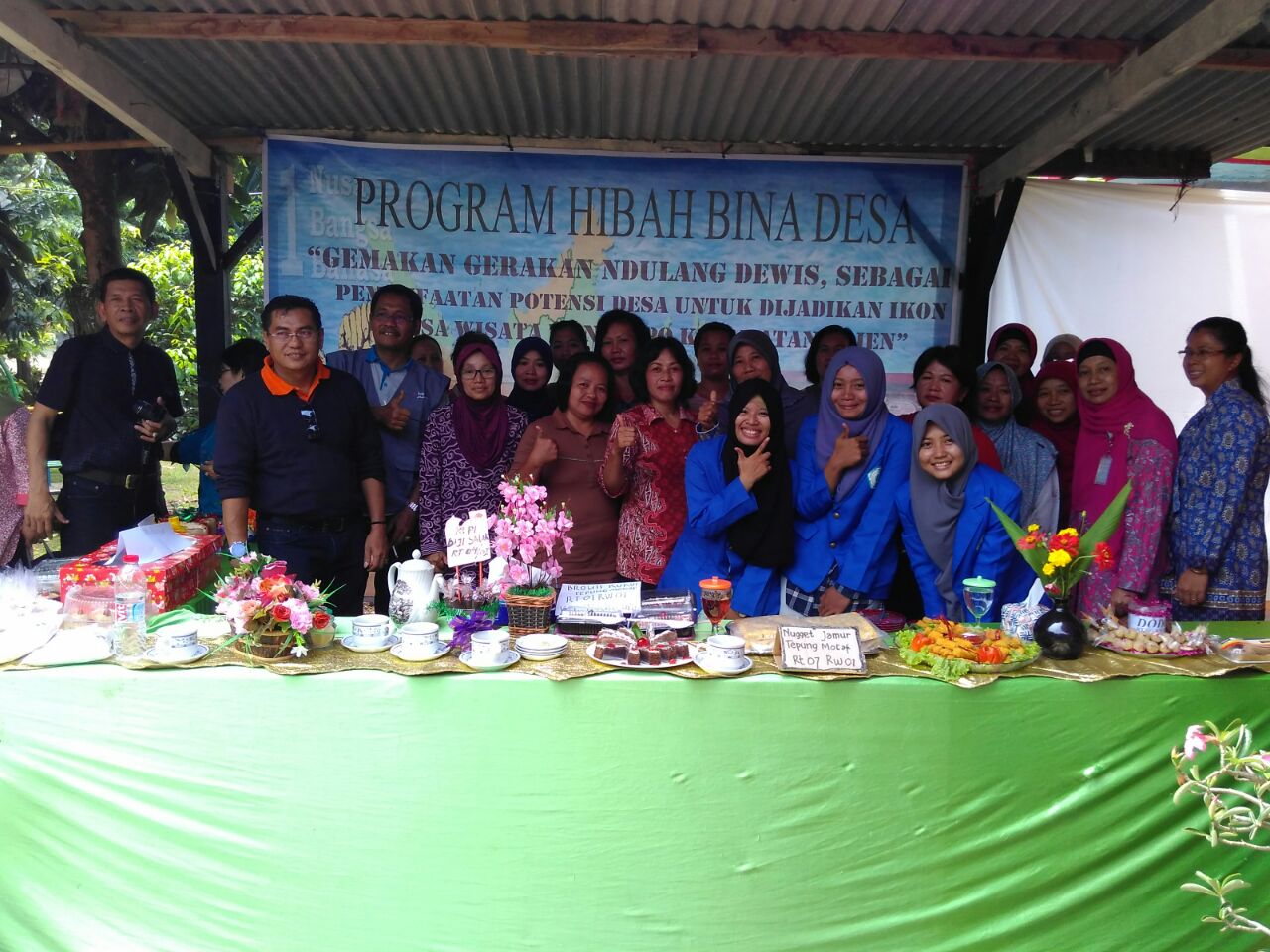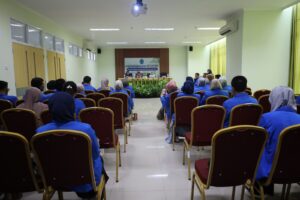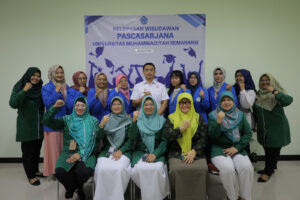
Wonolopo | A team from the Ministry of Research, Technology and Higher Education visited and evaluated Unimus’ Food Technology’s partner village in Wonolopo, Mijen, Semarang on November 9, 2016, accompanied by five students of Unimus such as Iis Istiqomah, Arif Wibowo, Riska Cipta Sari, Andre Raziq Muhammad, and Siswi Sekar sari, the Vice Rector III (Drs. Samsudi Rahardjo, M.M. , M.T., ) and the advisor.
The event was the follow-up the achievement of those students on behalf of HIMATEPA (Food Technology Student Community) whose proposal of Hibah Bina Desa (PHBD) program had been granted by the Directorate General of learning and Student Affairs of the Directorate General of Higher Education (Dikti).

The theme “Echoing the Movement of ‘Ndulang Dawis‘” was chosen in purpose of empowering the community to increase the sale and use values of the local natural resources available in Wonolopo Village, e.g. Durian, snake fruit, and cassava, which by then had been just sold as raw and fresh products. Such a movement as well as the program was hoped to result in processed food products based on the local foods so that they could become Wonolopo’s iconic food products. For instance, cassava was processed to become mocaf flour by fermenting it. Having similar characteristics to wheat flour and thus subtitutive to it, mocaf flour could be used to make brownish, getuk, and nugget. Other example were durian that was processed to become Durian Pie and Snake Fruit that was used to make dodol, while the seed became snake fruit seed coffee.

The event was positively responded by the surrounding people for it could be useful to support their economy. It was also a way of introducing Unimus to people in general for Unimus had been known just from its medical-and-health-related programs.
Meanwhile, the team from the Ministry of Research, Technology and Higher Education explained to the villagers that they were responsible for the moving Indonesia forward, especially villages. And, PHBD was one of the programs applied to all areas in Indonesia, through student communities of either public or private colleges. They also appreciated their enthusiasm.
The event, held for several days, had given an experience for the villages, especially the part that educated them about making local food products with higher sale and use value. However, some problems were faced by the people, such as in the packaging and marketing. Responding to those, the Vice Rector III offered a solution saying the marketing could be done online. He promised to train them about that for the sake of the program’s success.
![]()




